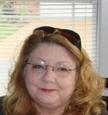The majority of patients who successfully complete inpatient and have the desire to stay clean and sober relapse in the first year after acute care treatment. Anyone who has been to inpatient treatment has noticed that the among the other patients around them, that there is a large percentage who have been through inpatient treatment before. This is largely because addiction is still being treated as an acute illness rather than the chronic disease that it is. Chronic diseases require ongoing monitoring, intermittent treatment episodes, and often educational services on how to change one's lifestyle so that it promotes rather than interferes with long term recovery. Participating in continuing care services is a step in the right direction in changing your mindset about addiction and recovery. Continuing care is an essential piece of a system of treatment services for addiction. These post-acute treatment services may involve intensive outpatient, half-way house, sober living house, or weekly outpatient counseling in individual or group settings.
Continuing care, often called aftercare, often involves an open-ended time frame. It may involve a formal aftercare group participation that has a set time frame (i.e., one year). Continuing care assists the recovering person in developing and refining the living skills that they need to maintain recovery across their lifetime. The top ten ways that continuing care assists a recovering person attain that durability of recovery include the following:
1. Patients who go on to continuing care right after acute inpatient treatment are more likely to be able to withstand the "fall from the pink cloud" as they are supported through the transition from protected inpatient environment to the reality of daily living.
2. Aftercare serves a guide as to what to expect in early recovery, including the emotional highs and lows.
3. These ongoing services provide monitoring and accountability for the patient to be continuously taking the appropriate recovery actions on a daily, weekly, and monthly basis.
4. Aftercare counselors provide feedback and suggestions for dealing with triggers as they occur, and guidance for seemingly insignificant decisions that set the stage for relapse.
5. Aftercare counselors are familiar with the interactions of 12 step groups and common interrelationship events, can create stumbling blocks to continuing recovery if not addressed. It assists the patient in staying engaged in 12 step groups.
6. Continuing care assists the patient in making those behavioral, emotional, and lifestyle changes that are conducive to recovery over a lifetime. Continued shaping, and reinforcement of those changes are necessary for sustained benefit.
7. Patients who maintain involvement in ongoing treatment services are much less likely to relapse while participating in those services.
8. Those who do relapse and stay in continuing care counseling are more likely to have a shorter, less damaging relapse.
9. Those that relapse are more likely to re-engage in twelve step participation and get back on the path toward continuing recovery.
10. Those who participate in relationship counseling with someone who understands the individual and family dynamics of addiction and recovery are less likely to divorce in early recovery.
People trying to find their way into recovery need all the help they can get. The numerous articles on my website that are available to you, cover Individual and Family Dynamics of Addiction and Recovery, Marriage, Sexual Addiction, Mental Health, Couple Communication, and Skill Development, along with other informational resources such as a Recommended Readings page, a Links page, an Ask Peggy column, Surveys, and e-books. To check out my website, go to http://www.peggyferguson.com To purchase and download my ebooks, go to http://www.peggyferguson.com/ServicesProvided.en.html
The information in this article (and on my website) is for educational/information purposes only, and is not a substitute for professional medical advice, examination, diagnosis or treatment.
Dr. Peggy L. Ferguson, Ph.D., LADC, LMFT, Marriage/Family Therapist, Alcohol/Drug Counselor, Writer, Trainer, Consultant, provides professional counseling services in and around Stillwater, Oklahoma.

Post new comment
Please Register or Login to post new comment.